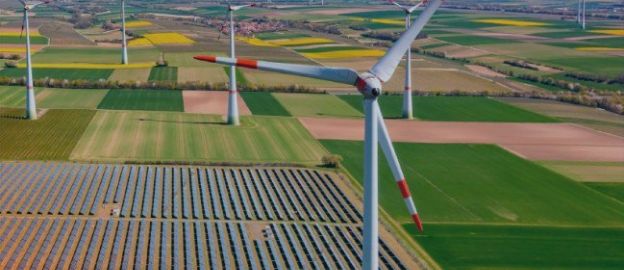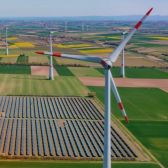Tag:
Elastyczność eng
Potential of cable pooling in Poland

The development of renewable energy sources is one of the most urgent needs of the Polish energy system. RES lower energy costs, reduce emissions and increase energy security. However, although energy companies, industry, local authorities and individual consumers are interested in investments in RES, the further development of new, emission-free energy sources has been a challenge. One of the main problems is the denial of connection capacity to new RES investments. In addition to the necessary grid investments, a more efficient use of the existing infrastructure is needed to solve this problem. One of the tools available is cable pooling - enabling the interconnection of RES sources.
5 minutes minutes
Potential of cable pooling in Poland
The development of renewable energy sources is one of the most urgent needs of the Polish energy system. RES lower energy costs, reduce emissions and increase energy security. However, although energy companies, industry, local authorities and individual consumers are interested in investments in RES, the further development of new, emission-free energy sources has been a challenge. One of the main problems is the denial of connection capacity to new RES investments. In addition to the necessary grid investments, a more efficient use of the existing infrastructure is needed to solve this problem. One of the tools available is cable pooling - enabling the interconnection of RES sources.
5 minutes minutes

The capacity market in Poland―more expensive than ever

Poland has already held six power auctions. Analysis of their results shows that this mechanism in its current form is not an optimum solution for the country. The capacity market has proved more expensive than anticipated, has failed to curb the increase in electricity prices and, in addition, has contributed to the petrification of the outdated and coal-based generation structure. The arduous task of plugging the coal gap has only just begun, which is why decisions on modernisation and on methods for supporting capacity up to 2030 must be taken urgently.
9 minutes minutes
The capacity market in Poland―more expensive than ever
Poland has already held six power auctions. Analysis of their results shows that this mechanism in its current form is not an optimum solution for the country. The capacity market has proved more expensive than anticipated, has failed to curb the increase in electricity prices and, in addition, has contributed to the petrification of the outdated and coal-based generation structure. The arduous task of plugging the coal gap has only just begun, which is why decisions on modernisation and on methods for supporting capacity up to 2030 must be taken urgently.
9 minutes minutes

10 steps to overcome the energy crisis

The prices of coal, gas, and CO2 are reaching record levels while the price for electricity is galloping, causing panic among politicians, energy consumers, and institutions responsible for maintaining Poland’s energy security.
14 minutes minutes
10 steps to overcome the energy crisis
The prices of coal, gas, and CO2 are reaching record levels while the price for electricity is galloping, causing panic among politicians, energy consumers, and institutions responsible for maintaining Poland’s energy security.
14 minutes minutes

Distribution grids and electromobility. Planning and development

In recent days, British Prime Minister Boris Johnson announced an acceleration in the development of electromobility. By 2030, 145,000 charging points are to be built in Britain, and from 2022 all new residential and office buildings will have to be equipped with chargers. This is just one of the announcements of the global revolution in transportation. In Poland the pace and character of changes have different dimension. The National Fund for Environmental Protection and Water Management (NFOŚiGW) has just announced a programme of subsidies for the construction of charging stations for electric and hydrogen vehicles as well as PLN 1 billion support for operators to develop distribution networks.
6 minutes minutes
Distribution grids and electromobility. Planning and development
In recent days, British Prime Minister Boris Johnson announced an acceleration in the development of electromobility. By 2030, 145,000 charging points are to be built in Britain, and from 2022 all new residential and office buildings will have to be equipped with chargers. This is just one of the announcements of the global revolution in transportation. In Poland the pace and character of changes have different dimension. The National Fund for Environmental Protection and Water Management (NFOŚiGW) has just announced a programme of subsidies for the construction of charging stations for electric and hydrogen vehicles as well as PLN 1 billion support for operators to develop distribution networks.
6 minutes minutes

Microinstallations on a turning point | How to secure the future of distributed energy in Poland?

In recent years, over 600,000 households and businesses have invested in their own solar installations, and approximately 35,000 jobs have been created in companies offering services in this segment. This is the biggest, albeit unplanned, success of the Law and Justice government in the energy sector. However, further expansion of micro-installations in Poland is questionable - the government is planning changes in the rules governing this dynamically developing energy sector. This is an operation on a living organism, therefore surgical precision is needed in introducing changes - a transparent process, clear intentions and time that will allow the newly established sector and energy companies to prepare for the transition.
6 minutes minutes
Microinstallations on a turning point | How to secure the future of distributed energy in Poland?
In recent years, over 600,000 households and businesses have invested in their own solar installations, and approximately 35,000 jobs have been created in companies offering services in this segment. This is the biggest, albeit unplanned, success of the Law and Justice government in the energy sector. However, further expansion of micro-installations in Poland is questionable - the government is planning changes in the rules governing this dynamically developing energy sector. This is an operation on a living organism, therefore surgical precision is needed in introducing changes - a transparent process, clear intentions and time that will allow the newly established sector and energy companies to prepare for the transition.
6 minutes minutes

Poland needs 2 GW of new photovoltaic capacity annually - that's why prosumers should be supported

The government is announcing changes in the support system for prosumers. The combination of the current operational support scheme (a version net-metering, called “rebates”), subsidies in the form of the “Mój Prąd” program and tax credits resulted in rapid development of solar energy in Poland. Within a few years the installed capacity in micro-installations increased from 200 MW to 3.3 GW. Security of energy supply in the summer has strengthened, CO2 emissions have been reduced and the generation mix has become more diversified to some extent. Citizens have fallen in love with renewables for good. So what’s next?
17 minutes minutes
Poland needs 2 GW of new photovoltaic capacity annually - that's why prosumers should be supported
The government is announcing changes in the support system for prosumers. The combination of the current operational support scheme (a version net-metering, called “rebates”), subsidies in the form of the “Mój Prąd” program and tax credits resulted in rapid development of solar energy in Poland. Within a few years the installed capacity in micro-installations increased from 200 MW to 3.3 GW. Security of energy supply in the summer has strengthened, CO2 emissions have been reduced and the generation mix has become more diversified to some extent. Citizens have fallen in love with renewables for good. So what’s next?
17 minutes minutes
